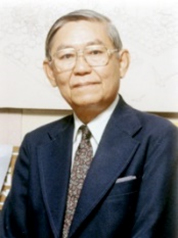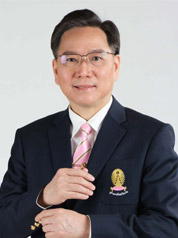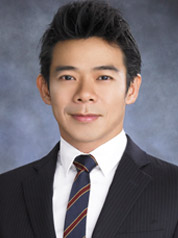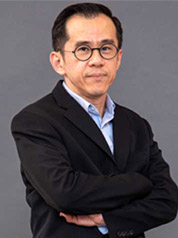Following the discovery of abundant natural gas reserves in the Gulf of Thailand in the 1980s, there was a strong demand for qualified manpower to work in the fast growing petrochemical and related industries. Chulalongkorn University, realizing this need, established the Petroleum and Petrochemical College (PPC) in 1988 to produce graduates of high international standards in the fields of petroleum, petrochemical technology, and polymer science. Collaborations with internationally recognized universities were envisaged as the most fitting way to establish a graduate program that would be comparable to that offered in world-leading institutions. In 1991, Associate Professor Kamchad Mongkolkul, Director of the College at the time, visited 12 U.S. universities to seek possible collaborations. The visit eventually led to collaboration with three leading U.S. universities to conduct international graduate programs at the Petroleum and Petrochemical College. The three collaborating U.S. universities were Case Western Reserve University, the University of Michigan, and the University of Oklahoma. A Memorandum of Understanding between the four institutions was signed at the end of 1992 and the first class of master-level students in two majors, Petrochemical Technology and Polymer Science, started in May 1993. The collaboration program was one of the few winners in the USAID-University Development Linkages Project (UDLP), a worldwide competition in 1993. The UDLP US$ 1,000,000 grant spanned over five years was very helpful in establishing a strong academic link between the four members of the partnership. The program also received strong support from the Thai government which provided funding of 160 million baht for the acquisition of scientific equipment over the same period. The program was further endorsed by the industrial sector, which provided 36 scholarships for the first class of students, while the Petroleum Authority of Thailand provided 20 additional scholarships. In May 1995, the College celebrated its first M.S. graduating class of 39 students. The collaboration was extended to cover Ph.D. programs in Petrochemical Technology and Polymer Science, and the first Ph.D. student was accepted in May 1997. Four years later, PPC produced its first Ph.D. graduate.

The International Graduate Programs at PPC, conducted in collaboration with our three partner U.S. universities, has proved to be so successful that Professor Emeritus Raymond D. Daniels, a founding member of the collaboration was invited to give a presentation to the President’s Committee of Advisors on Science and Technology (PCAST) at the White House in September 2000. He declared that this collaboration could be adopted as a model for the rest of the world. In 2002, the College introduced a new International M.S. Program in Petroleum Technology and a fourth partner, the Institut Français du Pétrole in France, was invited to collaborate with PPC. The first class of 18 students was accepted in May 2002 and they graduated in April 2004. Today, a total of 1,613 M.S. students and a total of 203 Ph.D. students have graduated from the Petroleum and Petrochemical College.
The success of the program is reflected by the several awards that the College has received over the years; these include awarded “Excellent Research Quality in Material Science and Technology and Mining, Materials and Multidisciplinary Engineering” by Thailand Research Fund. The College was ranked first in research and second in teaching in Thailand by the Office of Higher Education Commission, Ministry of Education. The College is also a Leading Institute of PETROMAT, the Center of Excellence on Petrochemical and Materials Technology, established by the Science and Technology Postgraduate Education Research and Development Office (PERDO) of the Higher Education Commission, Ministry of Education, with four universities as members (Chulalongkorn University, Kasetsart University, Silpakorn University, and Suranaree University of Technology). Also, all the five programs offered by the Petroleum and Petrochemical College (MS in Polymer Science, Petrochemical Technology, Petroleum Technology and Ph.D. in Polymer Science and Petrochemical Technology) were assessed by ASEAN University Network Quality Assurance (AUN QA) with MS in Petrochemical Technology program was the first Post Graduate Program in Thailand to be evaluated by AUN QA.
The achievement of the student education with the significant number of high impact international publications, PPC received the recognition in the academia and industries locally and globally.
The PPC is now going further with the national and international records;
With this success, PPC is now engaging research with industries through the collaborative research projects, involving with the country’s national Agenda, especially Bio-Circular-Green (BCG) Economy, and expanding academic partnership from Petro-refinery to Bio-refinery.







|
Year |
Event |
|
1988 |
The Petroleum and Petrochemical College, Chulalongkorn University was established |
|
1992 |
MOU was signed between four institutions; Chulalongkorn University, Case Western Reserve University, University of Michigan, and the University of Oklahoma |
|
1993 |
First Class of Master Degree in Petrochemical Technology and Polymer Science students were recruited |
|
1995 |
First Class of Master Degree in Petrochemical Technology and Polymer Science students graduated |
|
1997 |
MOU between the four institutions was renewed and the collaboration was extended to cover Ph.D. programs in Petrochemical Technology and Polymer Science |
|
1997 |
First Ph.D. student was recruited |
|
2001 |
First Ph.D. student was graduated |
|
2002 |
the College introduced a new International M.S. Program in Petroleum Technology and a fourth partner, the Institut Français du Pétrole in France, was brought in |
|
2011 |
PPC produced more than 1,000 graduates (M.S and Ph.D. graduates), a total of more than 100 Ph.D. students graduated from the College |
|
2012 |
PPC produced more than 1,000 M.S students (1,077 graduates, PL 148, PC 502 and PO 428 graduates) |
|
2014 |
PPC’s MS in Petrochemical Technology program was the first post graduate program in Thailand to undergo AUN QA program assessment |
|
2019 |
All the five programs offered by PPC have been assessed by AUN QA program assessment |